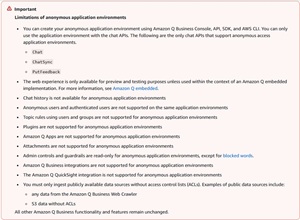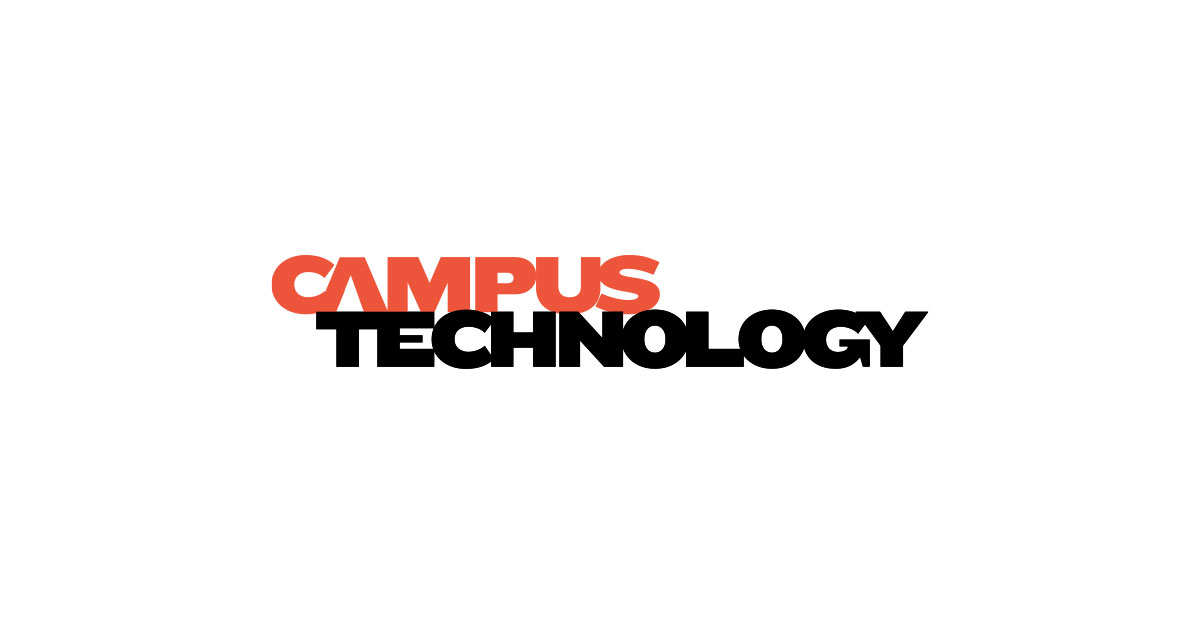ARTICLE AD BOX
AWS Updates AI Offerings with Amazon Nova Premier, Llama 4, Anonymous User Q Business Chatbots
- By David Ramel
- 05/06/25
Amazon Web Services (AWS) has made a number of AI moves to maintain its position alongside fellow cloud giants Microsoft and Google. New developments include: the general availability of Amazon Nova Premier, the company's self-described most capable multimodal foundation model for complex tasks; the first models in the new Llama 4 herd of models — Llama 4 Scout 17B and Llama 4 Maverick 17B — are now available fully managed in Amazon Bedrock; and anonymous user access for Q Business.
"Customers can now create anonymous Q Business applications to power use cases such as public web site Q&A, documentation portals, and customer self-service experiences, where user authentication is not required and content is publicly available," the company said of the latter in an April 30 post.
Amazon Q Business is a generative AI-powered assistant offered as part of AWS's enterprise cloud services. It's designed to help users get fast, secure answers to work-related questions by interacting with company data.
Key features include:
- Enterprise Search: Connects to internal data sources like Confluence, Salesforce, S3, SharePoint, and more to retrieve relevant answers.
- Natural Language Interface: Users can ask questions in plain language and receive accurate, contextual responses.
- Customization: Organizations can tailor the assistant with custom plugins, APIs, and business logic.
- Security and Privacy: Built on AWS's identity and access control systems, ensuring responses respect data permissions.
The anonymous chat APIs and web experience are available in the US East (N. Virginia), US West (Oregon), Europe (Ireland), and Asia Pacific (Sydney) AWS Regions, with company offering up Creating an Amazon Q Business application environment for anonymous access documentation, and the Build public-facing generative AI applications using Amazon Q Business for anonymous users post for more guidance.
Amazon Nova Premier
As noted, AWS claims this is its most capable model for complex tasks such as processing long documents, videos, large codebases, and executing multistep agentic workflows. The company said it's also its most capable teacher model and can be used with Amazon Bedrock Model Distillation to create custom distilled models for specific needs. This refers to knowldege distillation, where a large, powerful model (the teacher) is used to train a smaller, more efficient model (the student).
The company said Nova Premier extends the capabilities available from its Amazon Nova understanding models with several key improvements that include:
- Superior intelligence: The model scores 87.4% in the Massive Multitask Language Understanding (MMLU) benchmark for undergraduate-level knowledge, 82.0% on Math500 for mathematic problems, and 84.6% on the CharXiv benchmark for chart understanding.
- Improved agentic capabilities: Nova Premier can perform end-to-end actions on behalf of the user, enabling more complex workflows such as Retrieval-Augmented Generation (RAG), function calling, and agentic coding. The model scores 86.3% on SimpleQA with RAG, 63.7% on the Berkeley Function Calling Leaderboard (BFCL), and 42.4% on SWE-bench Verified for software engineering tasks.
- Longer context: The model offers a context window of one million tokens. This enables analysis of bigger data sets like large codebases, multiple documents and images, documents longer than 400 pages, or 90-minute-long videos.
-

4 Ways Universities Are Using Google AI Tools for Learning and Administration
In a recent blog post, Google shared an array of education customer stories, showcasing ways institutions are using AI tools like Gemini and NotebookLM to transform both learning and administrative tasks.
-

3Play Media Launches AI-Enabled Accessibility Tools
Accessibility provider 3Play Media has introduced new AI-enabled video accessibility solutions designed to help colleges and universities meet ADA Title II compliance regulations.
-

1EdTech: 6 Key Steps for a Successful Credentialing Program
A new report from 1EdTech Consortium outlines recommendations for creating microcredential programs in schools, colleges, and universities.
-

Crafting Thoughtful AI Policy in Higher Education: A Guide for Institutional Leaders
Here's how to develop and implement an AI framework that not only aligns with an institution's unique mission, but also addresses the diverse needs of its stakeholders, including faculty, students, staff, and administration.










 English (US) ·
English (US) ·